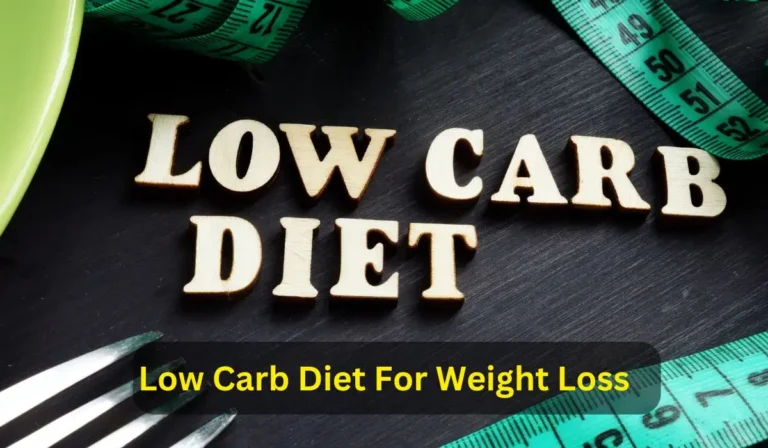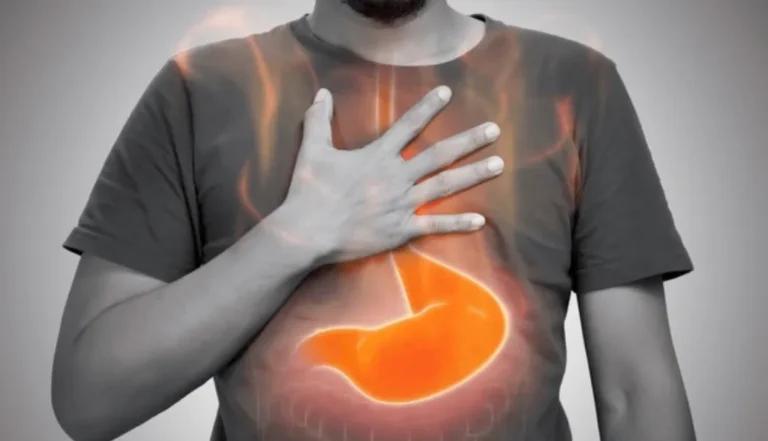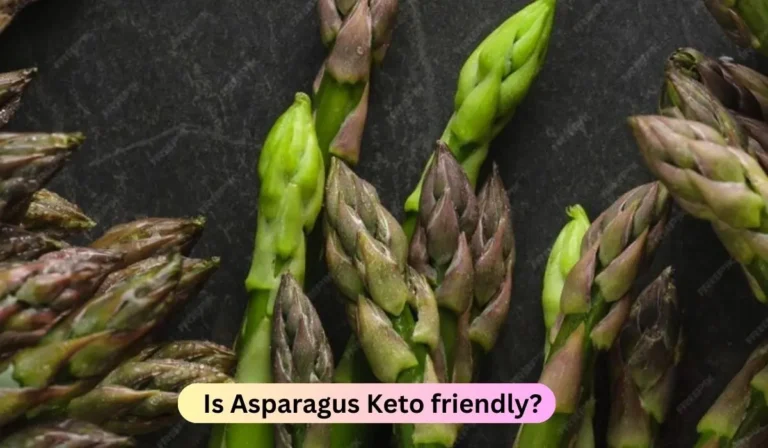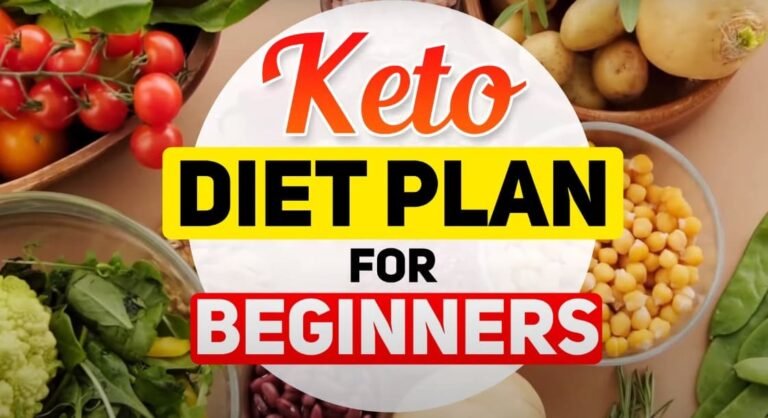Keto Diet for GERD Patients: A Guide to Managing Symptoms Effectively
Managing gastroesophageal reflux disease (GERD) can be challenging, especially when it comes to food choices. If you’re considering the ketogenic diet, you may wonder how it can affect your symptoms. The keto diet can provide relief for some GERD patients by promoting weight loss and reducing certain triggers associated with acid reflux.

Navigating the keto diet while dealing with GERD requires careful planning and consideration. You need to know which foods to include and which to avoid to minimize discomfort. By understanding the relationship between the keto diet and GERD, you can make informed decisions that align with your health goals.
As you explore the keto diet, it’s essential to monitor how your body responds and adapt your choices accordingly. This approach allows you to enjoy the benefits of keto while managing your GERD symptoms effectively.
Key Takeaways
- The keto diet can help reduce GERD symptoms through weight loss.
- Choosing the right foods is essential for managing GERD on a keto diet.
- Monitoring your body’s reactions can lead to better dietary adjustments.
Understanding GERD and the Keto Diet

Gastroesophageal reflux disease (GERD) and the ketogenic (keto) diet are interconnected topics that can affect your health. Knowing what GERD is, understanding the basics of the keto diet, and recognizing their potential interactions are crucial for making informed choices about your diet.
What Is GERD?
GERD is a chronic condition where stomach acid flows back into your esophagus. This leads to symptoms like heartburn, chest pain, and difficulty swallowing. It can result from factors like obesity, diet, and even certain medications. Over time, if untreated, GERD can cause serious complications, such as esophagitis and respiratory issues.
Many people seek ways to manage GERD symptoms through diet and lifestyle changes. Identifying trigger foods is essential in this process. Common triggers include spicy foods, fatty meals, chocolate, and caffeine. Managing these triggers can lead to relief and help you maintain better digestive health.
Overview of the Keto Diet
The keto diet is a low-carbohydrate, high-fat diet designed to shift your body into a state of ketosis. In ketosis, your body burns fat for energy instead of carbohydrates. People typically consume high amounts of meats, fish, eggs, nuts, seeds, and low-carb vegetables.
This diet can help some individuals with weight loss, which may also reduce GERD symptoms. Lowering carbohydrate intake may stabilize blood sugar levels and improve insulin sensitivity. However, the diet’s high fat content raises concerns for GERD patients, as fatty foods can sometimes worsen reflux symptoms.
Potential Interactions
When considering the keto diet with GERD, certain interactions warrant attention. High-fat foods typically found in keto diets can trigger acid reflux symptoms for some people. Foods like butter, cream, and fatty cuts of meat may contribute to discomfort.
It’s essential to select healthy fats. Incorporate sources like avocados, olive oil, and fatty fish, as they are less likely to cause reflux. Additionally, portion control plays a vital role. Eating smaller meals can help prevent excess stomach pressure, which often leads to reflux.
Monitoring your body’s response to the keto diet is critical. Keep a food diary to track what works and what doesn’t for you in managing GERD symptoms. Consulting with a healthcare professional is also advisable to ensure the diet fits your health needs.
Benefits of a Keto Diet for GERD Patients

Adopting a keto diet can bring specific advantages for individuals with GERD, focusing on reducing inflammation, managing stomach acidity, and improving gastric motility. Understanding these benefits may help you make informed dietary choices.
Reduced Esophageal Inflammation
One benefit of the keto diet is its potential to reduce esophageal inflammation. High-fat and low-carbohydrate foods can help decrease inflammatory markers in the body. These foods include avocados, olive oil, and nuts, which may be less irritating to the esophagus.
When you consume a diet rich in whole foods while avoiding refined carbohydrates, you support your overall gut health. This reduction in inflammation can lead to fewer GERD symptoms such as heartburn or regurgitation.
Impact on Stomach Acidity
Another advantage is the keto diet’s impact on stomach acidity. Many people find that lower carbohydrate intake helps them experience fewer acid reflux symptoms. Carbohydrates can trigger an increase in stomach acids, which may worsen GERD symptoms.
By focusing on high-fat foods and proteins, you may stabilize acid production. Foods like eggs, cheese, and fatty fish can provide necessary nutrients without elevating stomach acidity significantly. This shift can help manage the discomfort often associated with GERD.
Keto and Gastric Motility
The ketogenic diet may also improve gastric motility, which refers to how food moves through your digestive tract. Some studies suggest that a high-fat, low-carb diet can enhance gut motility, reducing the likelihood of reflux.
When your digestive system functions optimally, food moves through more efficiently, decreasing the risk of backflow into the esophagus. Incorporating fiber-rich vegetables like leafy greens can support this process, promoting bowel health and reducing GERD symptoms.
Considerations Before Starting Keto with GERD
Before starting the keto diet, it’s essential to understand how it may impact your gastroesophageal reflux disease (GERD). You should think about health consultations, how to balance macronutrients, and the potential risks involved in this diet.
Consultation with a Health Professional
Before making significant dietary changes, consult with a healthcare provider. A doctor or dietitian can help determine if the keto diet is suitable for you, especially considering your GERD symptoms. They can assess your health history and current medications.
A thorough evaluation will help identify any potential complications. Keep in mind that individual responses to the keto diet can vary, so professional guidance is crucial.
Consider additional tests if necessary, like an endoscopy, to evaluate your condition. A tailored approach will ensure that you embark on this diet safely and effectively.
Managing Macronutrients
In the keto diet, you focus on high fats, moderate proteins, and very low carbohydrates. For GERD patients, it’s crucial to choose the right types of fats.
Opt for healthy fats such as avocados, olive oil, and nuts. These options are less likely to trigger GERD symptoms compared to saturated fats found in fried foods or fatty cuts of meat.
Also, be cautious with protein sources. Lean meats and fish may be easier on your digestive system. Monitor how different foods affect your GERD symptoms and adjust your choices accordingly.
Tracking your macronutrient intake using apps or journals can help maintain balance while ensuring you avoid problematic foods.
Potential Risks and Side Effects
The keto diet comes with potential risks, especially for those with GERD. High-fat meals can slow down stomach emptying, which may worsen symptoms like heartburn and acid reflux.
Furthermore, some fatty foods, such as fried dishes and full-fat dairy, can weaken the lower esophageal sphincter (LES), increasing reflux risk. You might also experience digestive issues like constipation or diarrhea as your body adjusts to the new diet.
Additionally, monitor for any signs of nutrient deficiencies, such as vitamin or mineral deficiencies. These can arise from the restrictive nature of the keto diet. Regular check-ups will help you stay on track and address any concerns promptly.
Dietary Recommendations and Alternatives
Navigating dietary choices while managing GERD can help reduce symptoms and improve your quality of life. Below are specific recommendations on what foods you should embrace and which ones to avoid.
Foods to Embrace
When following a keto diet with GERD, focus on foods that promote good digestion and are less likely to cause heartburn. Consider including:
- Lean Proteins: Chicken, turkey, and fish are great options. They provide essential nutrients without the high fat content that may worsen symptoms.
- Non-Citrus Fruits: Foods like bananas and apples can be soothing for your stomach.
- Vegetables: Leafy greens, broccoli, and zucchini are low in carbs and high in fiber.
- Healthy Fats: Olive oil, avocados, and nuts can provide the necessary fats without aggravating reflux issues.
- Dairy: Opt for low-fat or full-fat yogurt and cheeses, which can help coat the stomach.
Making these choices can help keep your diet balanced while managing GERD.
Foods to Avoid
Certain foods can trigger GERD symptoms and should be limited or avoided. Stay away from:
- High-Fat Foods: Fried foods and fatty cuts of meat can increase acid production.
- Spicy Foods: Ingredients like chili peppers and hot sauces may irritate the esophagus.
- Citrus Fruits: Oranges, lemons, and grapefruits can lead to more acidity and discomfort.
- Tomato Products: Items like tomato sauce and ketchup are acidic and may worsen heartburn.
- Carbonated Beverages: Soda and sparkling water can cause bloating and increase reflux.
Avoiding these foods can help manage your GERD symptoms while adhering to your keto diet plan.
Monitoring and Adapting Your Diet
Monitoring your response to the keto diet is essential for managing GERD symptoms. This involves keeping track of your symptoms and making necessary adjustments to your food choices.
Tracking Symptoms and Progress
To effectively track your symptoms, keep a detailed food diary. Note what you eat, your portion sizes, and any GERD symptoms that arise afterward. This can help identify foods that trigger reflux.
Consider using an app designed for food tracking. Record symptoms like heartburn, regurgitation, and nausea. Over time, you may notice patterns that link certain foods to your symptoms.
You can also track your progress by measuring weight changes or improvements in digestive comfort. It’s helpful to revisit your diary every few weeks. This practice allows you to adjust your diet tailored to your specific needs.
Adjustments for Long-Term Management
As you adapt to the keto diet, be ready to tweak your meal plan. Focus on whole foods, as they are less likely to trigger symptoms. Include lean meats and plenty of vegetables.
Consider reducing high-fat foods that slow digestion. These may worsen symptoms, so choose healthier fats from sources like avocados and olives. Avoid processed and fried foods, which can irritate your stomach.
Regularly evaluate how you feel and make adjustments accordingly. If weight loss leads to reduced symptoms, maintain that aspect. Stay in tune with your body’s signals to create a sustainable diet plan conducive to both keto principles and GERD management.
FAQS ABout Keto Diet for GERD Patients
When considering a ketogenic diet with GERD, it’s important to understand the dietary choices and modifications that can help manage your symptoms. Here are some common questions that can guide you in your journey.
What dietary modifications are suggested for GERD patients on a ketogenic diet?
To manage GERD while on a ketogenic diet, focus on whole food sources. Opt for healthy fats like avocados, olive oil, and fatty fish. Additionally, prioritize lean proteins and limit high-fat processed foods that may worsen symptoms.
How can acid reflux symptoms be managed while following a keto diet?
You can manage acid reflux by eating smaller, more frequent meals. Avoid lying down right after eating, and try to stay upright for at least two to three hours. Keeping a food diary may also help you identify trigger foods.
Are there specific low-carb foods that are recommended for individuals with GERD?
Yes, low-carb foods that are gentle on the stomach include non-citrus fruits, leafy greens, and certain lean meats. Incorporating these options can help you stay within your carbohydrate limits while not irritating your GERD symptoms.
Can a ketogenic diet exacerbate acid reflux or GERD symptoms?
A ketogenic diet can exacerbate symptoms for some individuals, especially if high-fat foods slow down stomach emptying. It’s essential to monitor how your body responds to different foods and adjust your diet accordingly.
What are some GERD-friendly keto recipes?
GERD-friendly keto recipes often include ingredients like zucchini noodles, grilled chicken, and cauliflower rice. These recipes typically avoid spicy, greasy, or acidic ingredients that can trigger reflux symptoms.
What low-carb breakfast options are suitable for acid reflux sufferers?
Low-carb breakfast options for acid reflux sufferers include scrambled eggs with spinach, Greek yogurt with nuts, or smoothies made with almond milk and berries. These choices provide nutrition without aggravating your condition.






